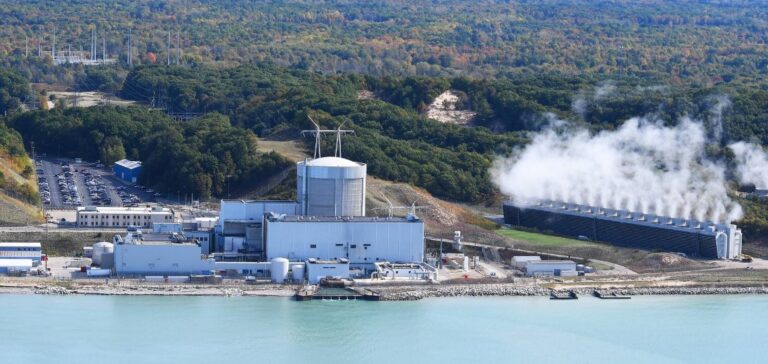In 2018, Holtec reached an agreement with Entergy to purchase the Palisades nuclear power plant ahead of its scheduled closure, with the aim of dismantling the plant by 2041. However, following the acquisition completed in June 2022, shortly after the reactor shutdown, Holtec revealed plans to apply for federal funding to be able to reopen the plant, receiving the support of Michigan Governor Gretchen Whitmer.
Government support and reopening objectives
Michigan’s fiscal 2024 state budget, signed by Whitmer, allocates $150 million to restart the plant. Whitmer pointed out that the reopening of Palisades would protect 600 well-paid jobs and provide clean, reliable energy to 800,000 homes. She added that Palisades, once open, would be the first successfully restarted nuclear power plant in U.S. history, generating a regional economic impact of $363 million.
Reauthorization process and agreements
In October 2023, Holtec officially began proceedings with the US Nuclear Regulatory Commission (NRC) to obtain reauthorization to restart Palisades, having already signed a long-term power purchase agreement with the non-profit Wolverine Power Cooperative for the sale of energy produced by the restarted plant. With NRC approval, the project aims to return the plant to service and upgrade it to produce clean baseload power until 2051, according to the Department of Energy (DOE).
Restarting Palisades would avoid around 4.47 million tonnes of CO2 emissions per year, or a total of 111 million tonnes over the next 25 years. Jennifer Granholm, U.S. Secretary of Energy, emphasized the crucial role of nuclear power as the leading source of carbon-free electricity, directly supporting 100,000 U.S. jobs. The Palisades project enjoys significant support from President Biden’s “Investing in America” plan, becoming the first project to receive a conditional commitment under the Energy Infrastructure Reinvestment (EIR) program under the U.S. Inflation Reduction Act (IRA).





















